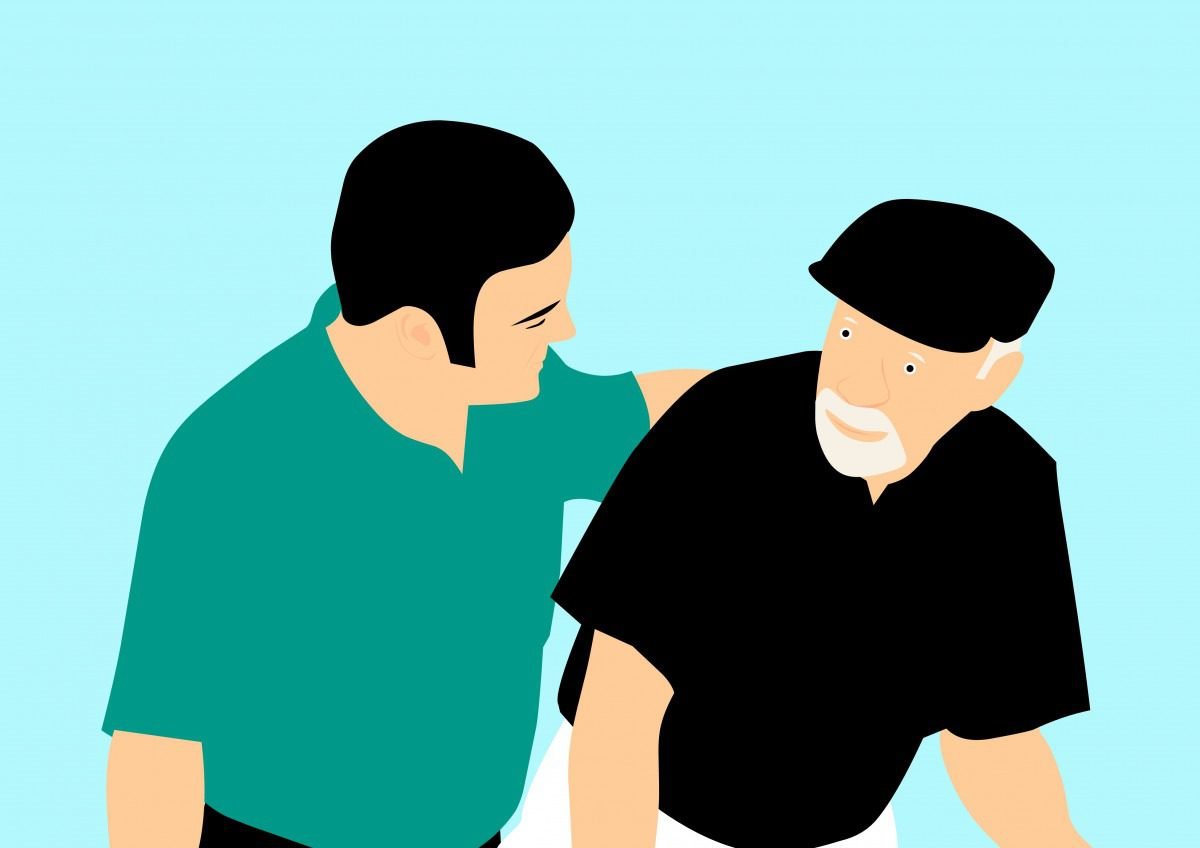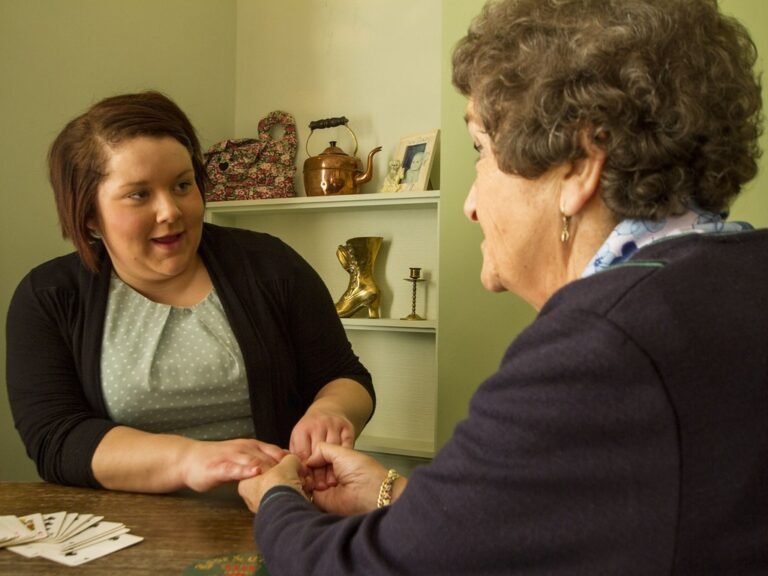Living With Someone With Dementia | Challenges & Dangers
Do you live with someone with symptoms of dementia and it makes you wonder how they deal with their daily life encounters? Being a caregiver to a loved one is a rewarding feeling but as difficult as it might be for the patient themselves, the caretaker might have their own concerns too.
This psychological condition is usually accompanied by violent behaviour, raising concerns regarding the safety of the patient as well as the people around them. This article aims to explore some aspects of this disorder and ways to manage some shortcomings.
If you’re looking for a dementia caregiver in Florida, check us out by clicking here!
Are Dementia Patients Dangerous?
As a person’s dementia progresses, they might become more susceptible to aggression and irritability. They might behave in aggressive ways under certain triggering circumstances.


Verbal threats and physical violence can be prevented by finding the underlying causes behind the violents reactions. Another important thing to consider is the role of individual personality in developing aggressive tendencies, irrespective of any psychological disorder.
Managing Aggression in Dementia Patients
Caretakers can keep a check on the patient’s health, look for any disturbing stimulus present around the patient that could cause distress. Make sure to fulfil their physical, psychological and social needs to avoid any disruption.
Motivate such patients to engage in social activities so they don’t feel isolated. In case the aggression worsens, reach out for psychological help for your loved ones.
Are Patients with Dementia Paranoid?
One commonly observed phenomenon in patients with dementia is holding false beliefs which later on takes the form of paranoia. Their cognitive inability to remember information and process them causes them to jump to conclusions without evidence and react in violent ways.
Dementia patients develop suspicions about the people around them. They may view them as dangerous and under severe circumstances, might attack them. Their delusions are very real to them so it’s significant to not get mad and behave in a calm way.
Managing Paranoia in Dementia Patients
Caretakers can gently offer them an alternative reality to calm the patients, acknowledge their distress and understand where they’re coming from. Make them feel like they’re being heard, reassure them that their concerns are valid and are being taken into consideration.
Do Dementia Patients have Sleep Problems?
Dementia is often accompanied by disruptions in a person’s body clock. Such patients often deal with sleeping problems such as difficulty falling asleep, waking up multiple times during sleep at night and excessive sleepiness during the day.


People with dementia may also have to deal with an abnormal circadian rhythm altering their sleep-wake cycle. Difficulty sleeping in these patients can also lead to aggression, stress, confusion, anxiety, mood swings and an affected physical health.
Managing Sleeping Problems in Dementia Patients
Caretakers can establish a routine for such patients, promote physical activity, cut off alcohol, caffeine and nicotine intake. Afternoon naps should be discouraged and their screen time during sleep hours should be eliminated.
If non-drug approaches are of no use and the situation worsens, consult a doctor.
Do Patients with Dementia have Urinary Incontinence?
People with dementia usually encounter occasional leak of urine or loss of bladder control. This condition usually varies with age or with physical health of the patient .
Due to the cognitive impairment in such patients, the messages between their bladder and brain are not transmitted properly. Such patients might not be able to sense a full bladder or the urgency to use a toilet. Another possible reason could be difficulty remembering the way to the toilet.
Managing Urinary Incontinence in Dementia Patients
It is crucial to not lose temper if such a situation happens, instead deal in a calm and subtle way, help them wash, remove obstacles from the path often taken to the toilet, put a sign at the toilet door for the patient to recognize, leave the toilet door open or avoid locking it.
How Long Before a Patient With Dementia Forgets You?
At stage 6 of the disorder, dementia patients often deal with inability to recognize people, even their loved ones. This is mainly because dementia causes damage to areas of the brain responsible for forming new memories or retrieving old ones.


Initial stages of memory loss may include forgetting recent conversations, inability to remember names, misplacing items, forgetting road paths, inability to carry out everyday tasks.
Managing Forgetfulness in Dementia Patients
It is significant for caretakers to remain patient when dealing with dementia patients. Try connecting with them or showing pictures of them with their loved ones, assist them with their daily life tasks, keep familiar objects around them, encourage them to socialise with the people around them.
Possible Triggers for Dementia Patients
It is important to know what triggers can affect patients with dementia so they’re eliminated in the future in order to build a healthy environment.
- A distressing environment such as loud noises or overcrowdedness can contribute to elevated levels of aggression in dementia patients.
- Unfamiliar faces can cause anxiety in such patients and may also cause them to react in violent ways.
- Feeling isolated can also trigger such patients.
- Physical discomfort such as pain.
- Sexual frustration also compels the patients to act in threatening ways
- Other psychological conditions such as depression can also contribute to raging behaviour.
- Low self-esteem can also be another possible trigger.
Taking Care of People With Dementia
Looking after patients with a condition is no doubt an overwhelming task to undertake. However taking certain steps can prove to be helpful in handling dementia patients in everyday care and tasks.
- Be gentle and respectful towards patients with dementia. Try not to embarass them regarding their disorder.
- Respect their personal space and avoid invading it.
- Establish a routine for patients with dementia and carry out the same routine everyday at the same time such as eating, bathing or napping.
- Encourage the patients to exercise daily.
- Assist them in making to-do lists to perform everyday tasks.
- Conduct activities the patients enjoy such as painting, cooking or swimming.
- Persuade dementia patients to socialise with their surroundings only if they feel comfortable in doing so.
Conclusion
Living with someone with dementia can be an emotionally challenging journey, but it is a journey that many individuals and families around the world navigate each day.
The right combination of both medication and non-medical strategies can help patients deal with their shortcomings in an effective manner. Maintain their quality of life through meaningful interactions and a deep compassion for their feelings. With understanding, patience and kindness provide the best possible care for your loved ones.
Read Next: Are Keto Pills Safe for Seniors & Do They Actually Work?
FAQs
What are the early symptoms of dementia to look out for?
Common early symptoms include difficulty in problem-solving, confusion about time and place, severe mood swings or inability to recall recent events.
How do I make my home safer for dementia patients?
Eliminate hazards and make sure to lock main doors to prevent wandering. Improve lighting and keep sharp object and kitchen appliances in lockup to prevent misuse.
How do I communicate effectively with dementia patients?
Communicate in simpler words leaving no room for confusion, remain patient and keep the tone calm. Avoid arguing or correcting them as it might trigger them.
Is it safe for patients with dementia to drive?
On late stages of dementia, it is not safe for patients to drive alone. It should be done under the supervision of a loved one or a caretaker.





![Why Do Dementia Patients Stare At You? [Behaviour Explained]](https://caringhandshomecarefl.com/blog/wp-content/uploads/2023/11/Why-Do-Dementia-Patients-Stare-At-You-768x511.jpg)

